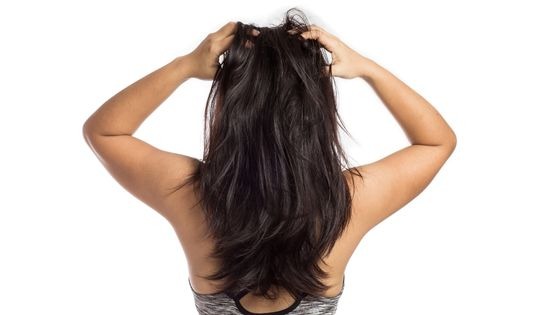Why does my scalp itch after applying oil?

Why does my scalp itch after applying oil? There could be a few reasons why your scalp itches after applying oil. It could be that you're allergic to the oil, or it could be that you're not using the correct type of oil for your scalp. If you're using an oil that's too heavy, it can clog your pores and lead to itchiness.
Talk to a hair expert to determine what oil is best for your scalp.
- What are the most common causes of scalp itchiness after applying oil hair treatment products?
- How can you tell if you're experiencing an allergic reaction to the oil treatment product?
- What should you do if you experience scalp itchiness after applying an oil hair treatment product?
- Tips for avoiding scalp itchiness after applying oil hair treatment products
- Final words
What are the most common causes of scalp itchiness after applying oil hair treatment products?
The most common causes of scalp itchiness after applying oil hair treatment products are product buildup, contact dermatitis, seborrheic dermatitis, and dry scalp.
Product buildup
Product buildup occurs when the oils in hair products accumulate on the scalp and block pores. That can lead to irritation and itchiness.
Contact dermatitis
Contact dermatitis is a reaction to an irritant in a hair product, such as an oil or fragrance.
Seborrheic dermatitis
A seborrheic dermatitis is a form of dermatitis that affects the scalp, face, and chest. It is characterized by redness, scaling, and itchiness.
Dry scalp
A dry scalp is a condition in which the scalp lacks moisture. That can be caused by harsh shampoos, weather, medications, or underlying health conditions. A dry scalp can also lead to itchiness.
If you are experiencing persistent scalp itchiness after using oil hair treatment products, you should consult a dermatologist for guidance on how to treat your condition.
How can you tell if you're experiencing an allergic reaction to the oil treatment product?
Before using any new skincare product, it's always a good idea to do a patch test first. That involves applying a small amount of the product to a discrete skin area and waiting 24-48 hours to see if any irritation develops.
If you're planning on using an oil treatment product, it's crucial to do a patch test first, as some people can be allergic to the oils used in these products.
Symptoms of an allergic reaction can include redness, itching, and swelling. If you experience any of these symptoms after using an oil treatment product, wash the area with soap and water and discontinue use immediately.
If symptoms persist, consult a dermatologist.
Best tips for avoiding scalp itchiness after applying oil hair treatment products
What should you do if you experience scalp itchiness after applying an oil hair treatment product?
If you experience scalp itchiness after applying an oil hair treatment product, it is essential to seek medical attention from a dermatologist. That could signify an allergic reaction or a more severe condition.
Once diagnosed, the dermatologist will likely prescribe a medicated shampoo or other treatment to help relieve the itchiness.
In the meantime, avoid using hair products on the affected area and try to keep the area clean and dry. If the itchiness persists or worsens, please see a doctor as soon as possible.
Tips for avoiding scalp itchiness after applying oil hair treatment products
Here are a few tips to avoid scalp itchiness after applying oil hair treatment products:
- Do a patch test before using any new product, especially if you're using an oil treatment product.
- Use a mild shampoo and avoid harsh chemicals.
- Drink plenty of water and eat a healthy diet.
- Avoid using hot tools on your hair.
- Use a humidifier in dry climates.
- See a dermatologist if you experience persistent itchiness after using oil hair treatment products.
Final words
Have you started to experience an itchy scalp after applying oil? If so, don't worry; you're not alone. This article explored the possible causes of an itchy scalp after using oils and some simple tips to help relieve the itch.
We also encourage our readers to check out our other articles for more information on how to care for their hair and scalp health. Thanks for reading!
DISCLAIMER: buildyourbody.org does not provide medical advice, examination, or diagnosis.
Medically reviewed and approved by Nataniel Josue M D.

